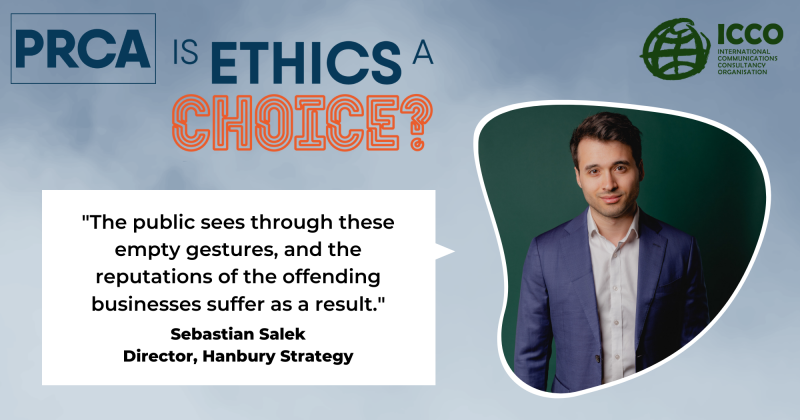
A missing €2 billion, a senior executive on the run, and the collapse of one of Germany's biggest companies. Of all the stories that I covered as a business journalist, this one was among the most dramatic.
The downfall of payments provider Wirecard shook the fintech world. Once a rising star in Europe, the company found itself at the centre of an international financial scandal after corrupt business practices and fraudulent accounting came to light. The saga was so spectacular that it inspired a new Netflix series.
The Wirecard story is a prime example of the most recognisable kind of business ethics violation: a company willing to do anything in pursuit of profit. A similar cautionary tale exists in our own industry. In 2017, Bell Pottinger famously went bankrupt after a racially charged campaign in South Africa. Losses racked up, clients cut ties, and its reputation was fatally damaged.
As PRCA members, we would all give the same advice to companies like these: avoid this behaviour at all costs. The truth will be out and you may never recover from it.
But now a more subtle ethical challenge is emerging. Businesses are increasingly feeling the need to engage in corporate activism, taking stances on the social and political issues of the day. While often well meaning, it risks opening up companies to accusations of hypocrisy.
This was illustrated beautifully by the Gender Pay Gap Bot, a Twitter account that tweeted the (often large) gender pay gaps of companies that celebrated international women’s day.
Similarly, how many companies expressing support for Black Lives Matter after the killing of George Floyd had a Black executive in their senior team? The public sees through these empty gestures, and the reputations of the offending businesses suffer as a result.
So how should companies balance speaking out with avoiding an ethical dilemma? The solution may be easier than you think.
Research by Hanbury Strategy and Stack Data Strategy found that most people prefer companies to talk about the basics - focusing on issues like how they can treat their employees better and improve services for customers - rather than weighing in on social issues. Of those surveyed, 69% called for a greater focus on staff and consumers, compared to just 31% who wanted companies to engage with the politics of the day. The one exception was climate, which respondents said should be a core issue for all businesses.
This opens up an ethical sweet spot. On one side are the Wirecards and Bell Pottingers, quietly pursuing unsavoury practices. On the other side are the corporate activists, supporting progressive causes despite not always living those values themselves. In the middle are the companies that keep it simple, doing the right thing while staying focused on the “bread and butter” issues that matter most to their customers.
For businesses that strive to act ethically, that’s the safest place to be.
